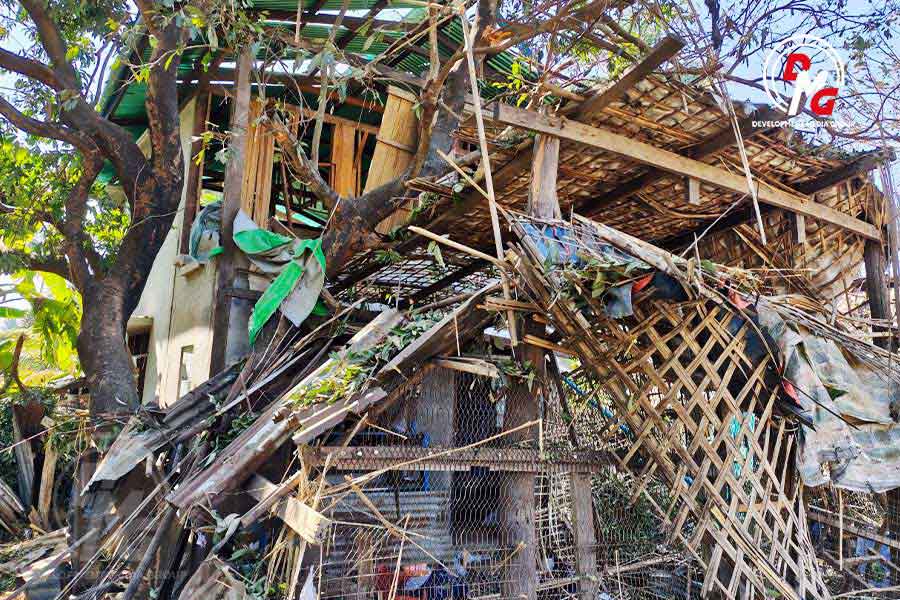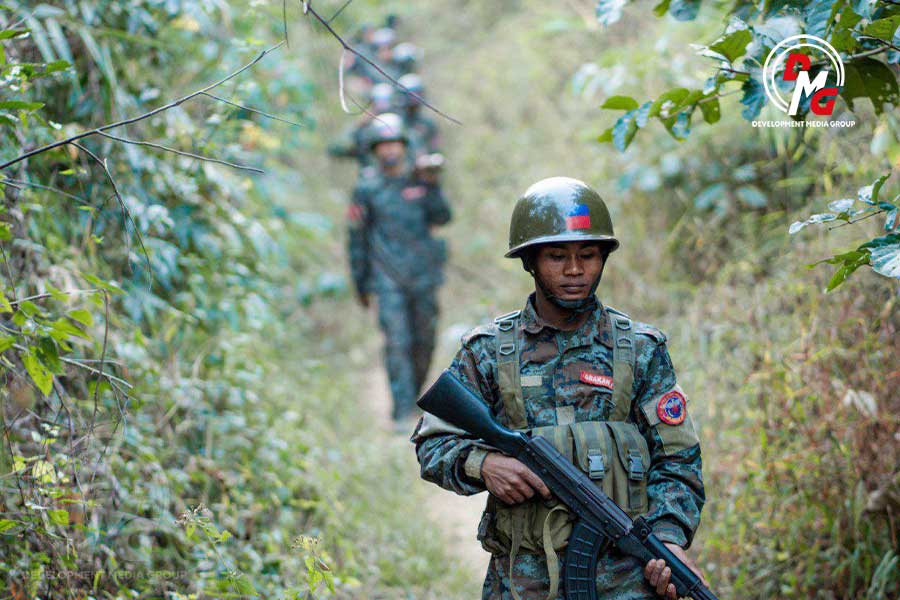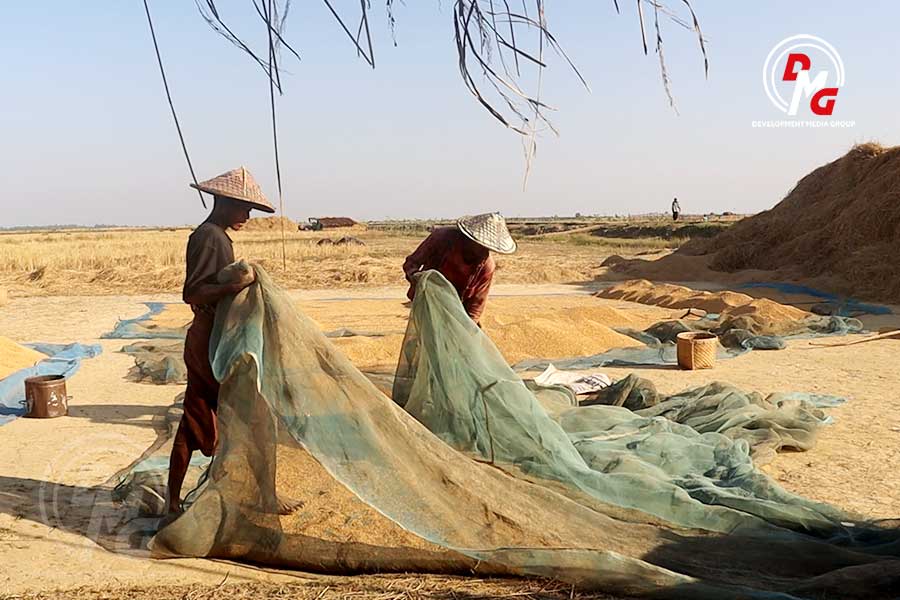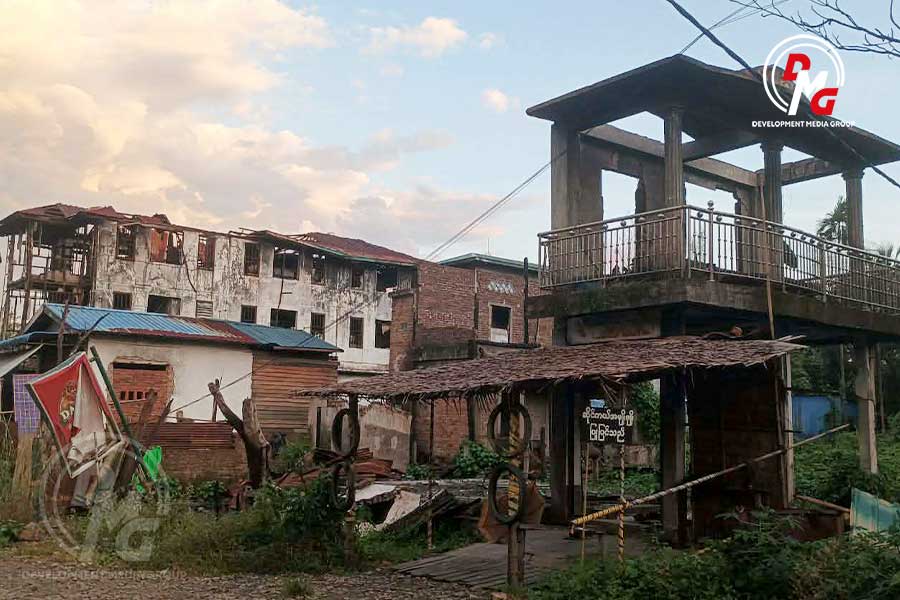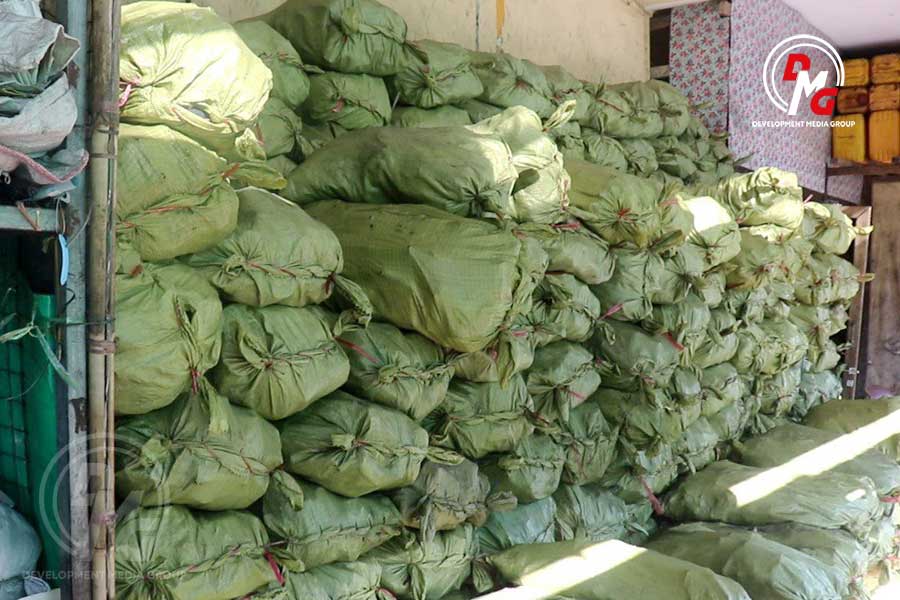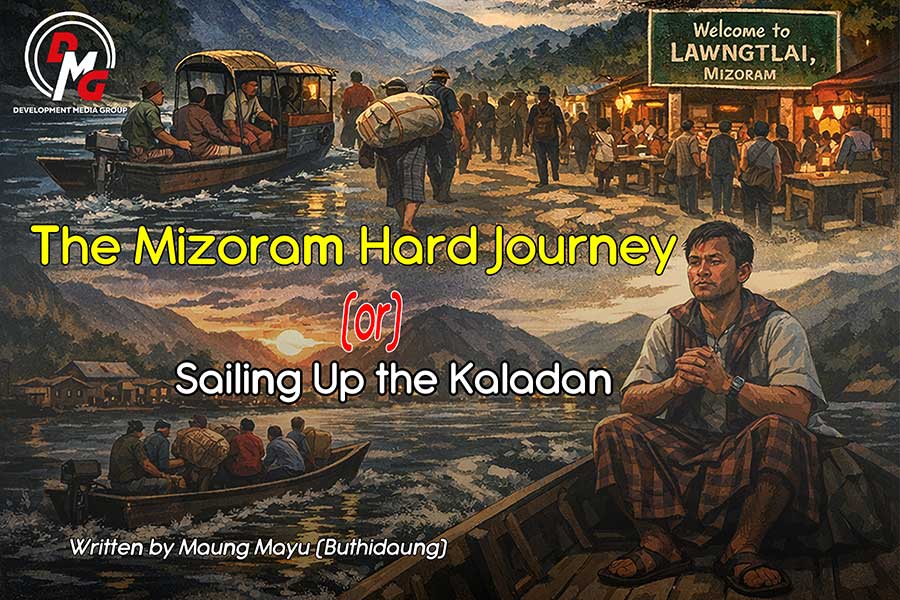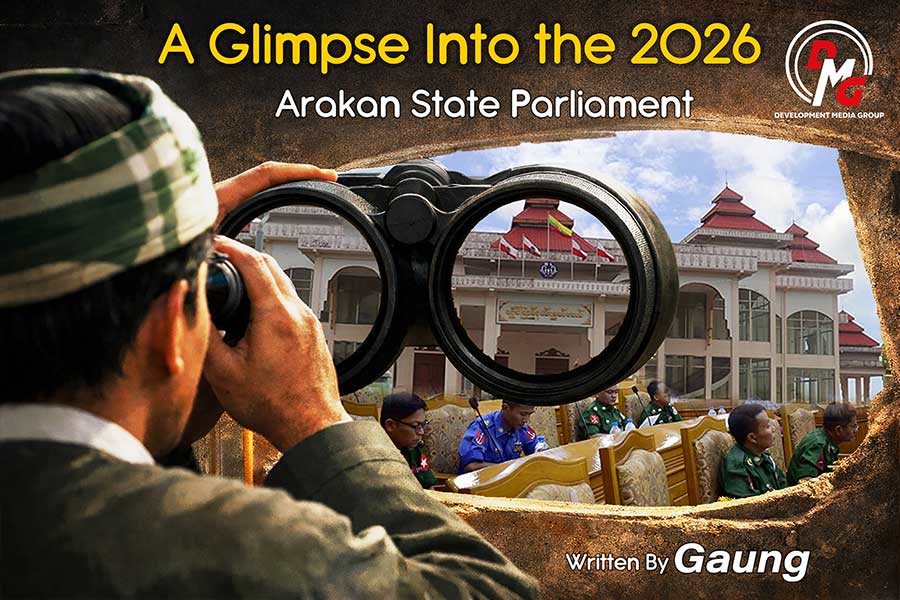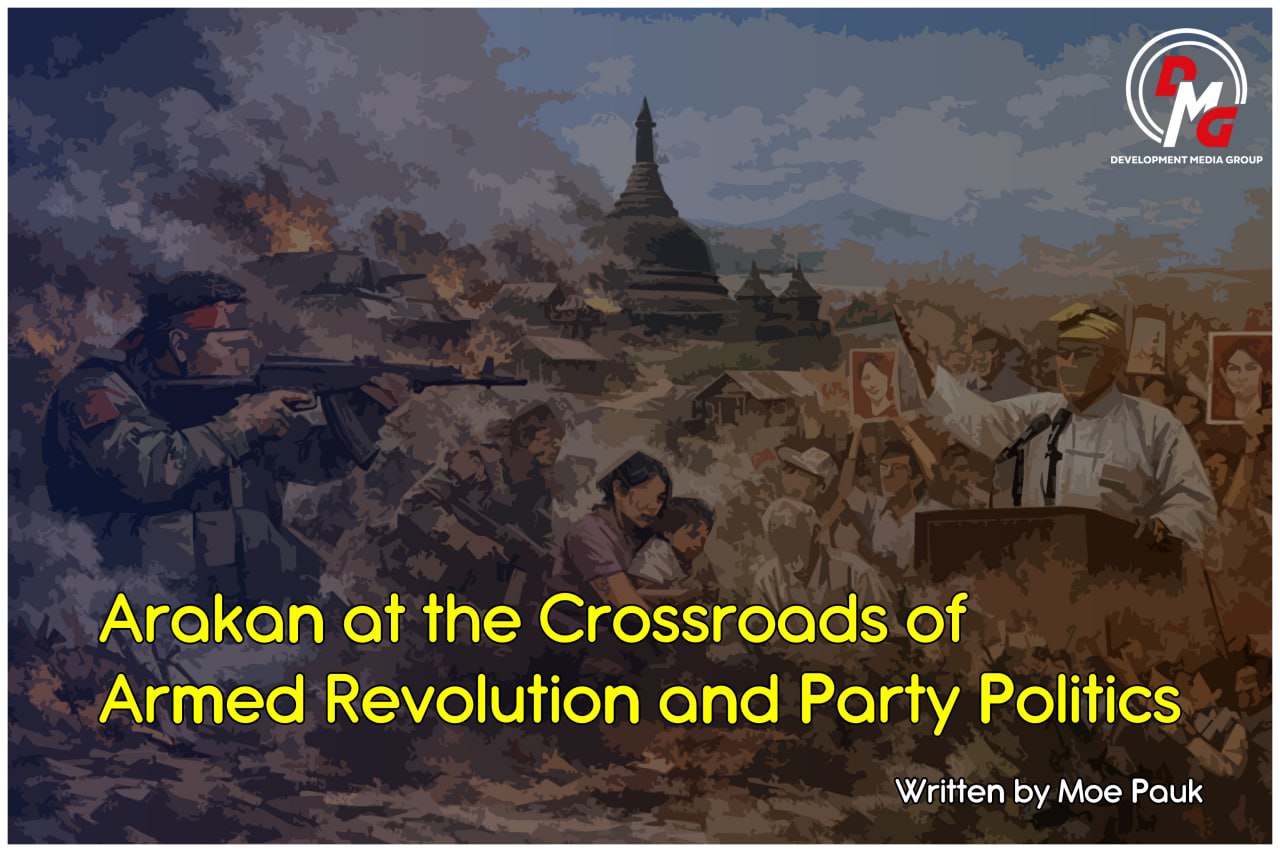- Seven civilians, including infant, killed in junta airstrikes on Kyauktaw and Mrauk-U
- The Mizoram Hard Journey (or) Sailing Up the Kaladan
- Arakan Army expands operations into Sagaing Region, seizes four junta camps
- ULA purchases paddy from farmers amid market shortage in Arakan State
- After Arakan fighting, Taungup residents struggle to rebuild homes
Coming rains no cooling salve for shelter-deficient IDPs in Arakan State
As extreme heat and severe water shortages are taking a heavy toll on people in many parts of the country, with record-breaking temperatures in some townships in central plains, many are eagerly anticipating the rains. But not everyone.
23 May 2024
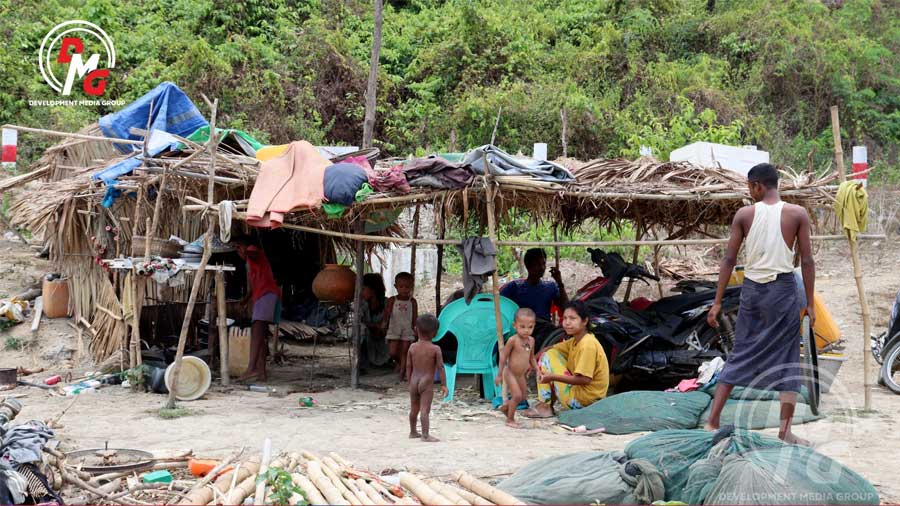
Written by Nyi Htwee Chay
As extreme heat and severe water shortages are taking a heavy toll on people in many parts of the country, with record-breaking temperatures in some townships in central plains, many are eagerly anticipating the rains. But not everyone.
Daw Aye Kyawt, from Kavi Yadana camp for internally displaced people (IDPs) in Arakan State’s Kyauktaw Township, said she dared not anticipate rains despite the heatwave and critical water shortages.
“Of the three seasons in the country, I am most afraid of the rainy season. IDPs live in makeshift tents made with bamboo, wood and tarpaulin sheets. They are not strong enough for the rainy season. I was terrified during Cyclone Mocha. After my house collapsed, I had to spend three months wet under a scanty shelter.”
Daw Aye Kyawt has been taking shelter at Kavi Yadana IDP camp since 2020 due to the fighting between the Myanmar military and the Arakkha Army (AA).
Numerous houses and reservoirs were destroyed or damaged by Cyclone Mocha in May of last year. Many are still struggling to rebuild or build new houses. Meanwhile, due to the El Nino phenomenon this year, Arakan State residents face serious water shortages earlier than usual.
Many wells and reservoirs were damaged by Cyclone Mocha in a dozen villages in Ponnagyun Township. Residents this year are facing water shortages earlier than the previous year, said U Than Tun Soe from Awe Ya Ma Village.
“Drinking water shortage is not a new problem. But it is more serious this year as reservoirs were destroyed by the cyclone last year. We have to walk half an hour to fetch water from the forest. But sometimes we can’t get water at all,” he said.
In previous years, residents only faced water shortages in early May. But people are suffering from severe water shortages this year due to a rise in IDP populations and the cyclone that damaged many reservoirs.
“There are a lot of mosquitoes in the rainy season. We don’t have enough mosquito nets. It is horrible. And children often get sick in the rainy season. It will be worse this year. I dread to think how we should go through the rainy season with little shelter,” said IDP U Kyaw Naing from Ponnagyun Township.
U Kyaw Naing has been sheltering at Sike Pyo Yay IDP camp in Ganantaung Village in Ponnagyun Township for four years.
Meanwhile, many people are newly displaced by the latest fighting that broke out in November of last year. They are also likely to lose shelter in the rainy season.
The IDPs, who live in makeshift tents near the Ponnagyun-Kyauktaw road and on the fields nearby, are forced to move because the owners of the fields need to plant paddy when the rainy season comes.
“When the rainy season comes, the farmers will plant paddy, so we will move out of the area. We are not allowed to return home and lack accommodation. We don’t know where to live. We would like to ask the concerned officials to arrange accommodation for us,” said an IDP woman who lives in a makeshift tent near Thayetcho Village in Ponnagyun Township.
The IDPs, who make a living by working odd-jobs such as masons, laundry workers, cargo workers and firewood sellers, became unemployed due to the ongoing fighting and they will face livelihood hardships during the rainy season.
“In the past, we worked a lot during the summer and saved money. We spent money in the rainy season. Job opportunities are scarce in the rainy season. We can’t collect vegetables and work as cargo workers in the rainy season,” said an IDP from the Ahtet Myethlae displacement camp in Ponnagyun Township.
During the current fighting, many IDPs in Arakan State are facing unemployment and lack of aid, so instead of being able to repair their sheltered homes, they are struggling merely to eat regularly.
More than 3,000 people from about 500 households near Thayetcho and Yoengu villages in Ponnagyun Township are living under trees, in gutters, on the side of the road in tents with tattered shelters.
“We have many difficulties accessing accommodation in the rainy season. It is not convenient for us to live in unsafe shelters in the rainy season,” said an IDP woman.
The AA has seized the majority of townships in Arakan since fighting flared anew in November. IDPs are still unable to return home as their homes were destroyed during the fighting and they are facing various challenges including accommodation in the rainy season.
During the latest fighting, the number of IDPs has increased by more than 290,000 and the total number of IDPs in Arakan State has reached more than 350,000. IDPs are in need of emergency assistance such as food, medicine and drinking water, as well as accommodation.
“Although I can return home, I have no home. It is not convenient for me to buy tarpaulin sheets to build makeshift tents,” said an IDP woman in Ponnagyun Township.
IDPs, who are by and large more afraid of the rain than the heat, will have to face the effects of the war as well as the rainy season with or without the assistance they need.




